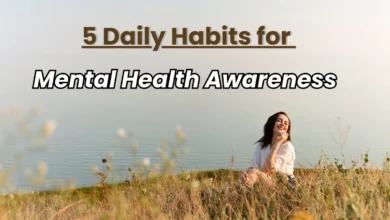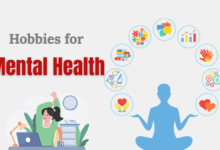What Causes Irritability? 7 Hidden Reasons You Feel So Moody

Understanding What Causes Irritability
Small things like slow internet, a loud sneeze, or even a misplaced sock shouldn’t ruin your whole day — yet somehow, they do. If you’ve ever caught yourself snapping over tiny inconveniences, you might wonder what causes irritability even when life seems mostly normal. Trust me, you’re not alone.
Many people silently ask, “Why am I so irritable lately?” or feel guilty about being easily annoyed without any clear reason. But frequent irritability isn’t just random bad luck — it’s often your mind and body flashing little warning signs. Let’s dive into the hidden emotional triggers behind your sudden mood swings.
Key Symptoms of What Causes Irritability and Increased Annoyance
Before tackling the reasons for irritability, it’s smart to recognize the signs. If you notice these symptoms, your mood might be begging for attention:
- Frequent snapping or impatience
- Tightness in the jaw or shoulders
- Restlessness and difficulty concentrating
- Low tolerance for noise, people, or stress
- Emotional exhaustion without physical effort
Sounds familiar? Don’t worry. You’re not alone — and you’re definitely not doomed to life as a grumpy cat.
Top Hidden Causes: What Causes Irritability That You Might Be Ignoring
Here’s where things get interesting: multiple invisible factors can lead to constant irritability. Some of them might surprise you.
a) Lack of Quality Sleep
Not getting proper rest turns your brain into a grumpy, glitchy computer. Without sleep, emotional control weakens, leading to overreactions and extreme sensitivity to minor inconveniences. Fix your sleep schedule, and half the battle is already won!
b) Chronic Stress and Burnout
Daily life stress can slowly chip away at your patience. Long-term stress builds silent pressure, making your tolerance for anything slightly annoying drop to zero. No wonder one more email can feel like a personal attack sometimes.
“Tension is who you think you should be. Relaxation is who you are.” — Chinese Proverb
c) Blood Sugar Instability
Feeling angry when hungry isn’t just a meme — it’s biology. Sharp blood sugar drops can mess with mood regulation, making feeling easily annoyed almost automatic. Regular, balanced meals can work wonders here.
d) Hormonal Fluctuations
Hormonal shifts during PMS, menopause, or thyroid issues can massively impact emotional stability. If your mood swings seem totally out of sync with reality, it might be time to have a quick chat with your doctor.
e) Mental Health Conditions
Sometimes, persistent irritability signals underlying conditions like depression, anxiety, or ADHD. Addressing these emotional triggers early can help manage mood swings before they grow into something bigger.
f) Sensory Overload
In a world buzzing with endless notifications, lights, sounds, and movement, sensory overload is real. If you constantly feel overwhelmed by “too much everything,” your nervous system could be screaming for a break.
“Silence is not the absence of something but the presence of everything.” — Gordon Hempton
g) Lack of Personal Boundaries
Always saying “yes” to others but “no” to yourself? Overcommitting leads to emotional burnout. When your energy reserves run dry, even a friend asking for help can feel like an attack.
How to Treat What Causes Irritability and Constant Moodiness
a) Prioritize Sleep Hygiene
Treat sleep like a sacred ritual. No screens one hour before bed, dim lights, and a comfy environment can make miracles happen.
b) Stress-Reduction Techniques
Meditation, yoga, breathing exercises — even just going for a walk — can dial down stress levels and lighten your emotional load.
c) Balanced Diet and Regular Meals
Stabilizing your blood sugar with healthy snacks (and no, coffee and cookies don’t count as a balanced lunch) can smoothen emotional spikes throughout the day.
d) Hormonal and Health Checkups
If your irritability feels sudden or extreme, a simple blood test might uncover thyroid issues, hormonal imbalances, or vitamin deficiencies.
e) Limit Sensory Input: Reducing What Causes Irritability
Take “tech detox” breaks. Step into nature. Let silence do its quiet magic. Your nervous system will thank you.
f) Set Clear Personal Boundaries
Learn to say a polite but firm “no.” Protecting your energy isn’t selfish — it’s survival.

g) Seek Professional Help if Needed
There’s no shame in getting help. Therapists are trained to help you untangle emotional triggers and offer real solutions.
Final Thoughts: How to Tackle What Causes Irritability Naturally
So next time you find yourself plotting revenge against your neighbor’s barking dog, remember this: understanding what causes irritability puts you back in control. Whether it’s chronic stress, hormonal changes, or emotional triggers sneaking under the radar, awareness is half the cure.
You’re not broken; you’re beautifully human — and even the best humans get cranky sometimes.










Just tried zo88app and I’m digging the user experience. Easy to navigate, and the games are popping! If you’re lookin for something fresh on your phone, give it a shot: zo88app